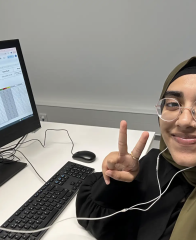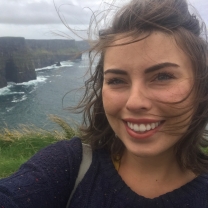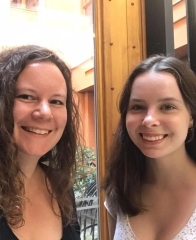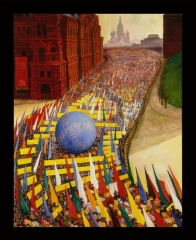 / Tending the Zoo: Amsterdam, Netherlands
Subscribe
/ Tending the Zoo: Amsterdam, Netherlands
Subscribe

My work focused on tending to the park’s 2,000 species of plants, working to enrich the urban ecology of the area. The zoo is also a botanical garden, with species of plants from all over the world. In addition to the animals they host in enclosures, the park is full of wild birds and small mammals – I encountered herons, wild parakeets, seagulls, families of ducks, songbirds, and more every day. One of the main projects I worked on was planting an organic edible garden to be harvested weekly for the animals. I learned how to till the soil, turn it over with manure mixed in, plant each edible plant according to how tall it grows and how much space it needs, and how to care for it throughout the season. Another project I worked on was building an insect hotel with clay, wood, reed, pots, and stones for pollinators to take refuge. This taught me about the needs of different insects and how important they are to an urban environment both for the plants and animals.
I had two main goals coming into this internship: to set myself up for moving to the Netherlands post-graduation and to learn about some different career paths in my field. This summer greatly improved my language skills as I was working in Dutch every day. I felt a slight language barrier in the beginning which was a challenge to navigate, having spoken Dutch at home sporadically and never attending school in Dutch, but after learning the names of the tools and the places in the park it became easier. I learned my way around the city and made some valuable connections with people in my field both in the workplace and outside of it. I suggested a month-long project of creating an informational booklet about the plant life in the zoo, which I will hopefully complete when I return in January. This internship also provided me with an idea of what my next steps should be to pursue a career in the Netherlands. Most higher education there is very specific, so a student like me would attend university for something like plant genetics or ecological sustainability. Conversations with my coworkers helped me understand the differences in education as well as attitude toward work. I feel much more prepared to pursue education and a career in Europe.
In terms of exploring career paths, this experience strengthened my desire to work with plants. I fed the lemurs and giant tortoises and spent most of my days working in the gardens alongside the zookeepers. I found these moments with the animals very touching, but ultimately I realized that most of the work with animals in a zoo involves scooping dung and preparing food, which is work I am personally less attracted to. I loved my work with the plants, getting to be in the dirt every day, learning the characteristics of each species, and watching them flourish throughout the summer. Having realized this, I am able to narrow down my academic interests to focus more on botanical life.
Looking back on the experience, I might have wanted to spend more time in conversation with the Botanical Designer, Ton. I conducted an interview with him and learned how he had worked at ARTIS for 45 years, turning the barren park into a lush green wonderland with plants in and around enclosures designed based on the origins of the animals nearby. He had an aesthetic vision as well as an ecological vision. The ecological aspect intrigued me. The Netherlands is overall a very man-made place, and designing cities to incorporate a certain amount of greenery supports urban wildlife to keep the city alive. I would have loved to spend more time digging into the particulars of designing and maintaining an urban environment. I realized I might be interested in further research or work in this area post graduation.
Working at the zoo was enriching, physically demanding, enjoyable, and fascinating. The work was mostly menial labor but I believe very strongly in the importance of academics participating in the hard labor of their field. I hope to conduct biology research in my future, and I am very grateful to have had the experience of working in the position of those who will be most directly affected by my research.




